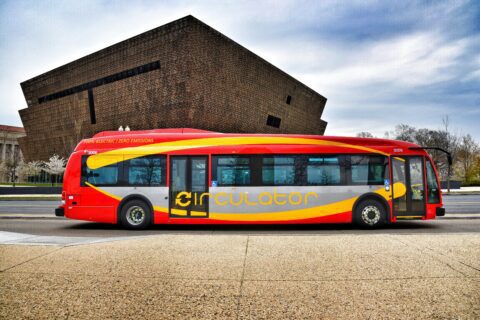Introduction to the Environmental Impact of Transportation
Welcome aboard the journey towards a greener future! Today, we’re diving into the realm of transportation and its profound impact on our environment. Buckle up as we explore how our modes of getting from A to B are leaving more than just tire marks on our planet. Let’s rev up those engines of change and steer towards sustainable solutions that pave the way for a cleaner, brighter tomorrow.
The Negative Effects of Transportation on the Environment
Transportation plays a crucial role in our daily lives, but it comes at a cost to the environment. The emissions from vehicles contribute significantly to air pollution, leading to respiratory issues and other health problems. Moreover, the extraction of fossil fuels for transportation contributes to habitat destruction and biodiversity loss.
The construction of roadways and infrastructure for transportation can disrupt ecosystems, fragment habitats, and lead to deforestation. Noise pollution from traffic can disturb wildlife patterns and communication. Additionally, oil spills from ships or pipelines can have devastating effects on marine life and coastal ecosystems.
The reliance on single-occupancy vehicles leads to traffic congestion, wasting time and fuel while increasing greenhouse gas emissions. The overall environmental impact of transportation highlights the urgent need for sustainable alternatives that prioritize both people’s needs and environmental preservation.
Solutions for Reducing Transportation’s Environmental Impact
As we navigate the challenges posed by transportation’s environmental impact, it is crucial to explore innovative solutions that can help mitigate harm to our planet. One effective approach is promoting the use of public transportation systems and investing in infrastructure that supports them. Encouraging more people to opt for buses, trains, or subways can significantly reduce carbon emissions compared to individual vehicle usage.
Another way to address environmental concerns related to transportation is through the adoption of electric vehicles (EVs). These eco-friendly cars produce zero tailpipe emissions, making them a cleaner alternative to traditional gasoline-powered vehicles. Governments and businesses can incentivize the transition to EVs by offering subsidies, tax breaks, and charging station installations.
Furthermore, embracing sustainable urban planning practices like designing walkable cities with bike lanes and green spaces can encourage active modes of transportation while reducing reliance on fossil fuel-dependent vehicles. By integrating these solutions into our daily lives and supporting policies that prioritize sustainability, we can pave the way towards a greener future for generations to come.
Advancements in Sustainable Transportation Options
With the growing concern over climate change and environmental degradation, advancements in sustainable transportation options have become a pivotal focus for innovators worldwide. Electric vehicles (EVs) have emerged as a promising alternative to traditional gas-powered cars, offering reduced carbon emissions and lower operating costs. The development of high-speed rail systems has revolutionized long-distance travel by providing an efficient and eco-friendly mode of transportation. Additionally, bike-sharing programs and electric scooters have gained popularity in urban areas, promoting greener commuting solutions.
Innovative technologies like hydrogen fuel cells are paving the way for cleaner energy sources in the transportation sector. Autonomous vehicles are also on the rise, potentially improving traffic flow and reducing greenhouse gas emissions through optimized driving patterns. Sustainable aviation initiatives aim to lessen the environmental impact of air travel by exploring biofuels and more efficient aircraft designs.
As we continue to push boundaries in sustainable transportation innovation, these advancements play a crucial role in shaping a greener future for generations to come.
Government and Corporate Initiatives to Promote Sustainable Transportation
Governments and corporations worldwide are recognizing the urgent need to promote sustainable transportation solutions. Many countries are investing in public transportation infrastructure to encourage people to use trains, buses, and other eco-friendly modes of travel.
Additionally, some governments offer incentives for electric vehicle adoption, such as tax credits and rebates. Corporations are also stepping up by implementing telecommuting options for employees and providing bike-sharing programs at workplaces.
Major companies like Google and Amazon are incorporating electric delivery vehicles into their fleets, reducing emissions from traditional gas-powered trucks. Moreover, corporate initiatives include promoting carpooling among employees and supporting the development of green technologies in the automotive industry.
By working together with government entities, corporations can play a significant role in shaping a more sustainable future for transportation. The collaboration between these two sectors is crucial in driving positive change towards a greener and cleaner environment for all.
Individual Actions for a More Sustainable Future
Looking to make a positive impact on the environment through your daily choices? Individual actions play a crucial role in creating a more sustainable future. One simple way is to opt for public transportation, biking, or walking whenever possible instead of driving alone in a car. This helps reduce carbon emissions and traffic congestion.
Another impactful action is to carpool with coworkers or friends for your commute, cutting down on the number of vehicles on the road. By doing so, you not only lessen pollution but also save money on gas and maintenance costs. Additionally, consider investing in an electric vehicle or hybrid car if feasible – they are more energy-efficient and produce fewer greenhouse gas emissions compared to traditional vehicles.
Furthermore, support local farmers by buying produce from farmer’s markets or joining community-supported agriculture (CSA) programs. Eating locally reduces the carbon footprint associated with transporting food long distances. Small changes in our daily habits can add up to significant environmental benefits over time – let’s all do our part for a greener tomorrow!
Conclusion: The Importance of Addressing Transportation’s Environmental Impact
Addressing the environmental impact of transportation is crucial for creating a more sustainable future. By understanding the negative effects of transportation on our planet and implementing solutions to reduce this impact, we can work towards a cleaner and healthier environment for current and future generations.
Through advancements in sustainable transportation options, such as electric vehicles, public transit systems, biking infrastructure, and carpooling initiatives, we have the opportunity to significantly decrease carbon emissions and air pollution caused by traditional modes of transport.
Government policies and corporate initiatives play a significant role in promoting sustainable transportation practices. By investing in green technologies, improving public transportation networks, and incentivizing eco-friendly commuting habits, we can make meaningful progress towards mitigating the environmental consequences of our travel choices.
Individual actions also hold power in shaping a more sustainable future. Simple changes like walking or biking instead of driving short distances, using public transportation whenever possible, carpooling with colleagues or friends, and maintaining vehicles properly can all contribute to reducing the environmental footprint of our daily commutes.
In conclusion,
it’s imperative that we collectively prioritize addressing the environmental impact of transportation. By working together at both individual and systemic levels to adopt greener practices and support sustainable initiatives,
we can pave the way for a cleaner,
healthier planet where people
and nature thrive harmoniously.







